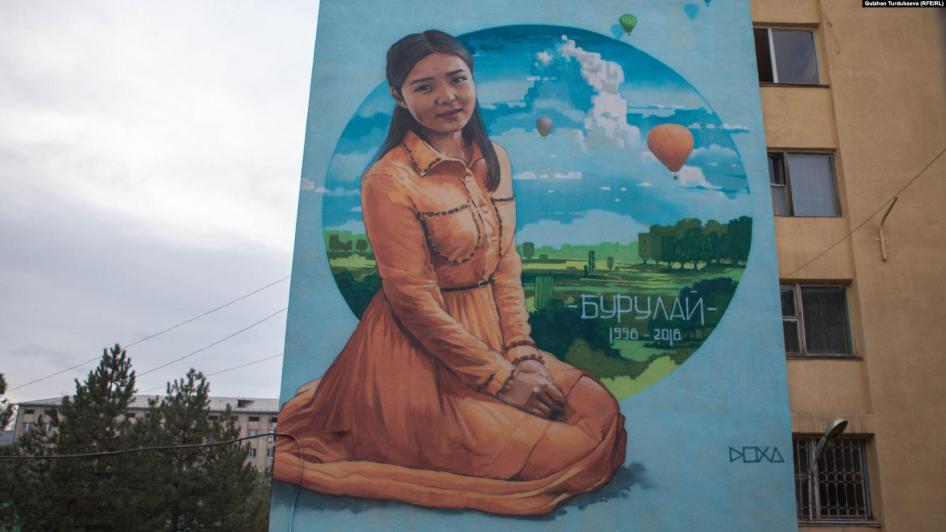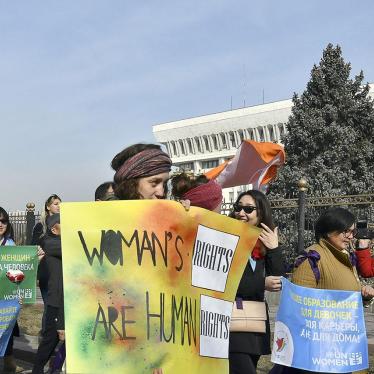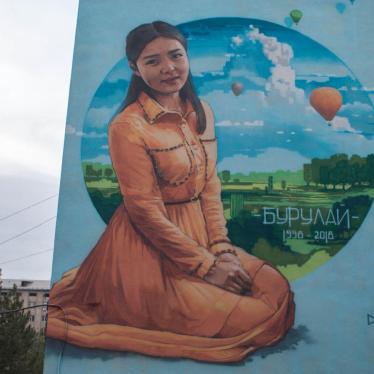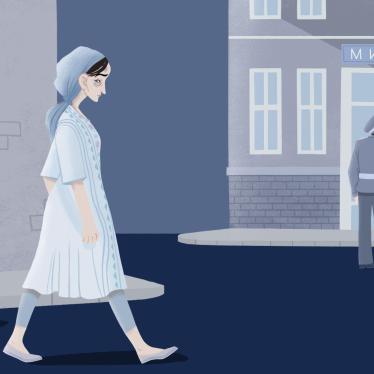For women in Kyrgyzstan, 2020 has already been deadly. At least three women were killed by their husbands or partners in the first 14 days of the year. Their deaths resulted from abuse including kicks to the head, burns, stabbing and severe beatings.
There are some signs that these killings could accelerate overdue action to address domestic violence. In response, prime minister Mukhammedkaly Abylgaziev has called for stronger laws and harsher penalties, and parliament is already discussing amendments to the family violence law. The country’s ombudsman requested an extraordinary meeting of the Coordinating Council of Human Rights to discuss domestic violence.
At a 17 January news conference, a representative from Kyrgyzstan’s Interior Ministry affirmed that domestic violence is an agency priority, though he cautioned that the work is “difficult.” Calls from an Islamic expert for stricter punishment for domestic abuse also point to engagement of religious authorities to change attitudes and end practices such as forced and child marriage, including through so-called “bride kidnapping”.
Yet local women’s rights activists question whether this will deliver real change. “These are not the first cases of domestic violence murders in our country,” said Larisa Ilibezova, a gender-based violence expert, pointing to earlier suicides of women and girls who were victims of forced marriage in the Issy-Kul region and the widely-publicized killing of a young woman, Burulai, by the man who abducted her for forced marriage in 2018.
Burulai’s murder prompted public protests and government insistence that it would act, but almost two years later, little has changed. “Gradually, it came to naught,” Ilibezova said. “I am concerned that could happen again.”
According to the Interior Ministry, of nearly 6,145 domestic violence cases registered by the police in 2019, only 649 resulted in criminal cases. Four were for murder.
Reliable domestic violence data is lacking, with conflicting data from different ministries. And domestic violence is underreported. Our research in 2015 and 2019 found that poor police and judicial response, lack of services such as shelters, and social pressure from families and authorities inhibit victims from coming forward. Those who do seek help and justice often do not receive needed support or protection.
Despite positive steps – such as criminalization of domestic violence in 2019’s Code of Misdemeanours and adoption of a new Family Violence Law in 2017 – gaps in these laws and their implementation leave women at risk. The misdemeanor code eliminates administrative arrest for domestic violence, instead providing only for fines or “corrective labor”. Survivors I interviewed for Human Rights Watch’s 2015 report said short-term administrative detention often provided their sole respite from abuse.
Moreover, heavy fines, which usually are paid from the family budget, put a financial squeeze on victims and their children. This creates additional pressure on victims to return to their abusers. If a couple “reconciles,” Kyrgyzstan’s laws permit authorities to drop domestic abuse cases.
The 2017 Family Violence Law led to a notable spike in protection orders, intended to provide short-term, immediate protection from abuse. But such orders are rarely enforced and violations are rarely punished. Police issued nearly 5,400 protection orders in 2019, but government data shows only 18 registered misdemeanors for failure to comply.
Poor enforcement of orders, including those that prohibit contact between an abuser and a victim, endanger women. This is compounded by government inaction to ensure existence of ample shelters or crisis centers, especially outside of cities. Victims I interviewed – usually dependent on their husbands or in-laws for housing and financial support – said they continued living with their abusers. They had nowhere else to go.
Following January’s killings, deputy prime minister Altynai Omurbekova announced the opening of one additional crisis center in the capital, Bishkek, and one in Osh. But this will hardly fill the gap. Kyrgyzstan’s 14 crisis centers – which offer services for domestic abuse survivors, but not necessarily shelter – struggle to survive and receive little, if any, government support. Bishkek, with a million people, has only about 22 spaces for women and their children in shelters run by nongovernmental organizations – far short of Council of Europe standards calling for one space per 10,000 people.
Combating domestic violence demands strong laws backed up by comprehensive measures to protect and support victims. This means training police and judicial personnel and holding them accountable when they don’t register complaints, issue and enforce protection orders, and investigate cases. The government should act urgently to increase shelter space, and medical, mental health, legal and socio-economic services for survivors throughout the country. It should also work to raise awareness about domestic violence services and change attitudes that are conducive to violence against women.
It will be important for national authorities to make sure that these moves are prioritized at every level, down to the most local, where victims’ first encounters with officials can determine whether they get help. Countering dismissive attitudes and inaction by police is an ongoing battle, activists say. “The local authorities think domestic violence is none of their business,” said Gulbarchyn Jumabaeva, a gender-based violence expert. Kyrgyzstan’s State Agency for Local Government has an essential role to play in implementing national commitments and focusing local officials’ attention on domestic violence.
It shouldn’t take a series of brutal murders to prompt government action. But if authorities do take critical steps to stop domestic abuse and protect its victims, 2020 could be a turning point for women and girls facing domestic violence in Kyrgyzstan.









